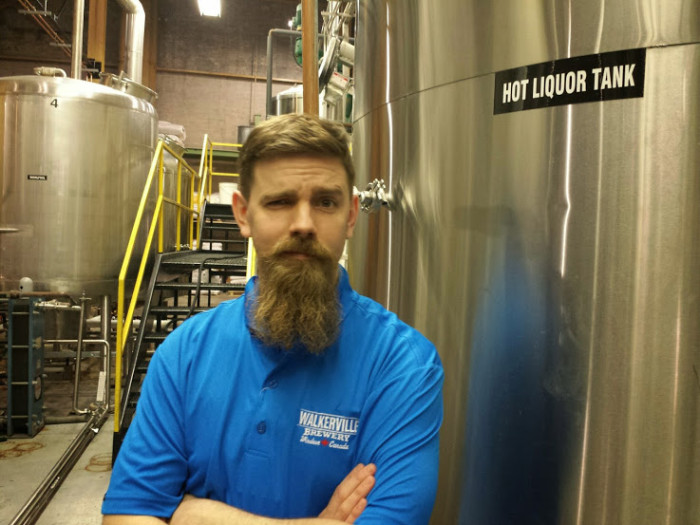The Urbanite – Jon Liedtke – Sept. 10, 2014
Ask a Brewer is column, created by Jon Liedtke, where local brewers provide readers with an insightful and informative lens into the brewing industry. Paul Brady is the master brewer at Walkerville Brewery.
Q: What is carbonation?
Carbonation refers to anytime that CO2, carbon dioxide, is dissolved into a liquid.
Q: Why do we carbonate beer?
For a few reasons: the main is the effervescence, the body it gives the beverage, like how carbonated water has more fizz … Carbonation is a natural byproduct of the fermentation process. It came in into the industry naturally and we found ways to perfect it, to get it to where we want it to be, to help enhance flavour profiles. When you’re making beer, the yeast eats the sugar in the wort and the two major byproducts are alcohol and CO2. It’s pleasant and we try to regulate the CO2 levels.
Q: Is it possible to create a beer that doesn’t have CO2 or low CO2 levels?
All day long, you just dont let it carb. You allow all the natural CO2 to escape. It would be considered flat beer.
Q: Are any beers brewed that way intentionally?
No. I’m not familiar with any. Some ancient beers are like that.
Q: Is it considered sacrilegious?
You can do what you want, but if nobody wants to buy it … (laughs).
Q: What are some benefits of regulating CO2?
One, the effervescence. But it’s also there to help dance the flavour profiles across the palate.
A lower CO2 level makes it softer on the palate and slide silkily. A high carbonation beer will be crisp and will sometimes bite you a bit.
Q: Can CO2 affect how beer looks or tastes?
CO2 is an acidic molecule and ph is a big factor in colour, but it doesn’t have that much acidity that it could affect the colour. It does help with the aroma because if your beer is bubbling and creating a nice foamy head, it is releasing aromatics and it will make it taste better because you can smell more of it.
Q: How can you carbonate your beer?
There are a few different ways, one way big breweries often do and many breweries do, is ferment their beer completely out. They will then filter it and transfer it to a bright tank, at which point they have what we call a carbonation stone. It’s a small stone, usually made out of ceramic or metal, with microscopic pinholes throughout it, and you shoot CO2 through this stone and the stone is in the beer, and it creates all these microscopic bubbles.
If you have the beer under pressure, it will force the beer into solution. We call that force carbonating.
Another way to do it is the old german style, krausening. You ferment your beer completely out, and you take beer that’s just hitting its high krausen, the high point of fermentation, and you add the newest batch of fermenting beer and it goes into the beer that you’re almost done with. As it’s eating its sugar and creating alcohol and CO2, you close the tank, and it allows it to build pressure and then force that natural CO2 into solution.
Q: What do you do at Walkerville Brewery?
A hybrid. We try to capture our CO2 before the tank is done fermenting and we do a natural fermentation process. We don’t do krausening, but we do try to capture natural carbonation. I feel it’s a much more softer, palatable and pleasurable experience.
Sept 10. 2014 – JON LIEDTKE
Page 7
Ask A Brewer: What’s the deal with carbonation? (archive.org)

Jonathon Liedtke is the managing editor of The Urbanite, Windsor’s alternative newspaper. He is also a member of Windsor’s “Punk with Horns” band The Nefidovs, and as such, is committed to enhancing and sustaining the arts community.



Leave a Reply